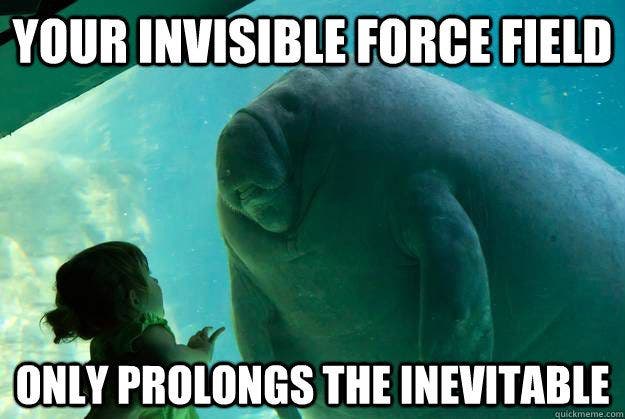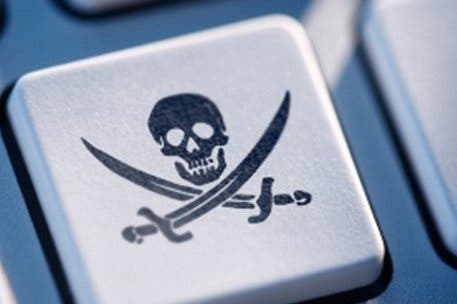Don't call it DRM: what's Denuvo Anti-Tamper?
The forcefield that kept Dragon Age and Lords of the Fallen free from piracy - for a few weeks at least.
What's remarkable about Dragon Age: Inquisition being cracked and pirated this week is that it took so long - nearly a month - to happen. In PC game-pirating terms, that's aeons - most games are cracked at release (unless they're online games).
What protected Dragon Age: Inquisition was Anti-Tamper technology by an Austrian company called Denuvo. It's tech that acts as a forcefield around whatever DRM the game has - such as EA Origin. To use Denuvo's language, it prevents "debugging, reverse engineering and changing of executable files". Literally, it stops tampering. Exactly how it works is Denuvo's trade secret.
But, as Denuvo was at pains to point out to me, "It is not a DRM solution." There's no rights management (as in Digital Rights Management) or licence management going on.
"Anti-Tamper is fundamentally different from DRM," I was told. "For example, if you add anti-tamper to a title without a DRM such as Steam, then Anti-Tamper is completely inert. Anti-Tamper only works in combination with an existing DRM system."

FIFA 15, Lords of the Fallen and Dragon Age: Inquisition all utilised Denuvo's Anti-Tamper tech, and all three remained uncracked for weeks.
"We're extremely pleased with how things have been going," the company responded. "Keep in mind that most PC games are cracked and pirated on the day of release, if not earlier, so keeping titles 100 per cent piracy-free for weeks or even months is almost unprecedented in the games industry."
It's hard to argue with that.
But now that Dragon Age: Inquisition has been cracked - verified separately by a handful of people on NeoGAF - what happens next? Now that Chinese hacking group 3DM does appear to have circumvented Denuvo's Anti-Tamper tech, will this DRM forcefield of the future be rendered obsolete?
"Every protected game eventually gets cracked," Denuvo reasoned. "For example, our Anti-Tamper protection on FIFA 13 went 13 days before being cracked. We improved the system for FIFA 14, and then that game went 46 days before being cracked. For FIFA 15, we again made improvements and now we're approaching 90 days without a crack. So, it's this kind of constant innovation that allows us to stay a step ahead and keep our customer's IP safe."
In other words, next time a crack could take even longer. Denuvo is far from beaten.
But is that good news for the game-playing public? There's no love lost between gamers and DRM, and try as Denuvo might to distance itself from being seen as DRM, it's part of the same conversation.
The problem with DRM is that it interferes with the experience of playing a game - sometimes a little, sometimes a lot. It doesn't often enhance the gaming experience you pay for. And unfortunately for Denuvo, its Anti-Tamper tech has earned notoriety for negatively affecting a game's performance. It's even been accused of degrading solid-state drives.
But this, Denuvo staunchly maintains, is nonsense - "[a] completely wrong rumour based on an assumption someone posted in a forum".
"Our Anti-Tamper technology does not perform any read-write operations to the hard-drive during runtime of the game - this would make no sense for security and would only have negative impact on performance.
"In fact we have no negative impact on the game's performance at all and don't put the hardware under more strain. This is one of the most important requirements from our clients, the game developers and publishers. The paying consumer is not affected by the Anti-Tamper at all - we just prevent/delay piracy."
Digital Foundry's Dragon Age: Inquisition Face-Off backs that statement up. "We also didn't run into any issues suggesting that the game's DRM scheme degrades performance," the article said.
Another myth surrounding the Anti-Tamper technology is that Denuvo called it "uncrackable", which it didn't. "Some press releases call our Anti-Tamper solution 'uncrackable'," the company explained, "[but] we are long enough in this business to have a more realistic view."
Long enough in the business? FIFA 13 was the first game that had the Denuvo Anti-Tamper protection, and that was released in 2012. Two years does not equal "long enough in this business" - yet there's more to Denuvo than meets the eye.
You see, Denuvo was once the Sony DADC DigitalWorks team. Or, to you and me, the company that made SecuROM. And SecuROM was DRM - and it had a bad rep.
But Denuvo is a new company formed from a management buyout of Sony DADC. As Denuvo explained to me, "The team is the same, but now that we're an independent company, we're much more nimble when it comes to decision making. We definitely have the spirit of a startup."
So what does this all mean?
It means that the publishers who sat on the fence about Denuvo's Anti-Tamper tech - took "more of a wait and see approach", to hear Denuvo tell it - will presumably now be convinced.
Again, it's hard to argue with the success Lords of the Fallen, Dragon Age: Inquisition and FIFA 15 had in not being pirated for weeks.
True enough, Denuvo's phone has been ringing. "We're seeing interest from games publishers as well as from intellectual property owners outside the games industry," the company told me.
EA and CI Games (Lords of the Fallen) had nothing to add when I asked them for comment for this article, but presumably they're happy and plan to use the Anti-Tamper tech again.
In other words, it looks like Denuvo's Anti-Tamper tech is here to stay.

